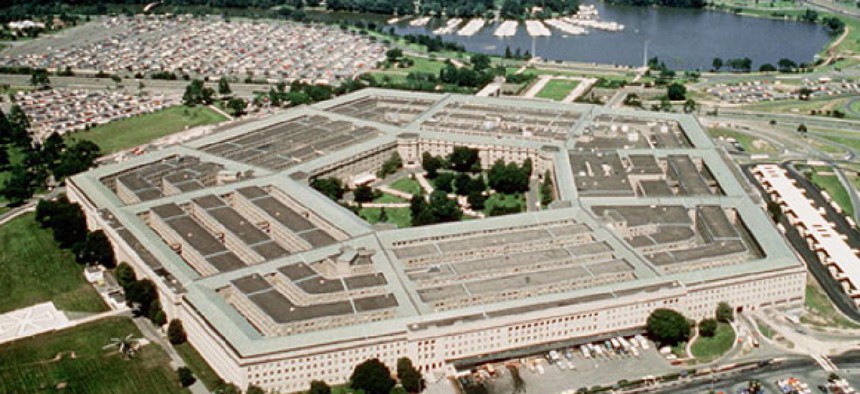
Defense Department file photo
Insiders: Romney's attacks over defense cuts won't sway voters
Many Americans think defense reductions are reasonable, security experts note.
Seventy percent of National Journal’s National Security Insiders say Republican presidential candidate Mitt Romney’s attacks on President Obama alleging his support of $1 trillion in cuts to the Pentagon’s budget will not have an impact on voters.
The issue of the looming sequester’s $500 billion reduction to the Pentagon budget absent a compromise on Capitol Hill to reduce the deficit and debt -- on top of another $500 billion in cuts over the next decade already planned -- has quickly become central to the GOP argument. Romney’s campaign has released ads in five swing states warning that “President Obama’s defense cuts” could cost tens of thousands of jobs.
“There was very little daylight between the president’s budget proposal on defense and what was approved by the House,” said one Insider, adding that it’s “Pretty hard to campaign hard on defense increases when the majority of the public believes that the budget ought to be cut.”
Most voters believe that defense spending can be safely cut now that U.S. forces are no longer fighting in Iraq and are reducing combat operations in Afghanistan, another Insider said. “Even with the sequester, defense spending will decline by only 10 percent (plus reductions made possible by winding down in Afghanistan and Iraq). Most Americans will think this is reasonable, and they would be shocked if key civilian programs were gutted to spare defense cuts.”
Another 30 percent said Romney’s claim would impact voters. “It helps solidify the base of defense-minded voters who were already trended toward Romney. It’s a relatively small bloc. But in a close election, it could make a demonstrable difference, particularly in swing states like North Carolina and Virginia that have a significant military presence,” one Insider said.
Defense-minded voters’ worries could kick into overdrive if companies with Pentagon contracts start to send out mass-layoff notices or warning that industry jobs could be lost due to the cuts set to take effect next year. “The president is holding defense hostage, via sequestration, to tax increases,” said one Insider, predicting that layoff notices will mean “hundreds of thousands of people will fear for their jobs -- and not only those in the defense sector.”
No matter who the president is, defense spending will fall from its heyday over the past decade, noted one Insider: “Candidate Romney may promise differently, but President Romney would soon be met with fiscal reality after elected.”
Meanwhile, 70 percent of National Security Insiders also say the recent rash of attacks by Afghan forces that killed dozens of U.S. and NATO troops this year should not quicken the pace of the drawdown in Afghanistan. “Green-on-blue [attacks] is a considered tactic by the insurgents -- one designed to alter our training strategy, cast doubt on our Afghan partnership, and quicken the pace of our withdrawal. We cannot alter our plans because of these events,” one Insider said. “Stay the course.”
The pace of withdrawal is already aggressive, according to another Insider. “Hastening it would signal to Afghans and other adversaries that America was withdrawing in fear and defeat, with its tail between its legs,” the Insider said.
The United States has not yet announced the pace of the drawdown between the end of this month, when the last of the 33,000 surge troops were due to leave Afghanistan, and the 2014 deadline for all combat troops to pull out. “To augur its own future, the Afghan government needs to strengthen its vetting of recruits into the security forces,” an Insider said. “This should be the focus of responses to green-on-blue violence.”
Another Insider said the increase in attack frequency corresponds with the political push for more training. “Recent attacks show the need for more training and better vetting, not a more rapid withdrawal,” the Insider said. “We need to step back, slow down, and focus on improvements.”
But 30 percent of Insiders said the U.S. and NATO should withdraw more quickly because the attacks, as some Insiders said, reinforce the general desire for a withdrawal.
“We are leaving, so do it quickly,” an Insider said.







